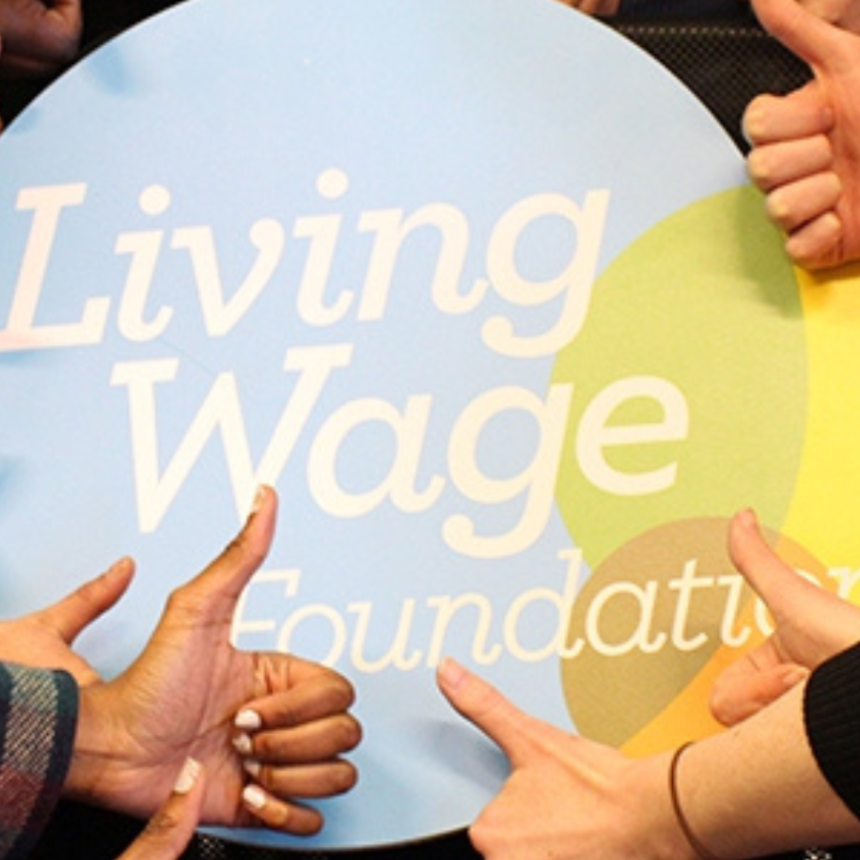Living Wage
Introducing the Issue
Does your company pay fair wages? Millions of people are in work, yet also in poverty, because of low pay. Responsible employers pay at least a ‘living wage’: the minimum amount an individual can earn to reach an acceptable standard of living. In contrast, the statutory ‘minimum wage’ is the lowest amount an employee may be paid by law, and is considered by most campaigners to be wholly inadequate.
How does your company perform on Living Wage?
Does your company pay a living wage? Do you have policies or practices to help you monitor levels of company pay with the cost of living? Perhaps this isn’t an issue that you need to worry about right now? We’ve developed benchmarks that attempt to define Poor, Okay, Good and Excellent company performance standards on living wage.
You are invited to assess your business against these benchmarks, for free and without obligation.
Living Wage
Follow this link to:
1 – choose your score
2 – add a few lines by way of explanation to describe your policies and practices
3 – enter your email address so that we can get back to you
4 – submit
Nothing you submit will be published or shared.
Exploring the Issue
Work is seen as a route out of poverty, a way for an individual to support themselves and their family, but there are instances where this is not the case. Globally, labour’s share of GDP has been falling, and in-work poverty is of growing concern to many.
Across the world, workers are earning wages below the level required to attain an acceptable standard of living for themselves and their families. This is true in both developing and industrialised economies. This is despite many countries having legal minimum wages, as these are often very low. It is estimated that 4.8 million people in the UK, or 17% of employees, are being paid less than the living wage and 1.1 million are paid below the national minimum wage and national living wage.
Currently, the UK is experiencing a cost-of-living crisis. With inflation on the rise, pushing millions into poverty, many are struggling to afford essential things like rent, heating, electricity, or groceries. Millions of people in the UK now resort to the use of food banks to feed themselves and their families. The Trussell Trust gave out 2.1 million food parcels to people facing hardship between April 2021 and March 2022, of which 830,000 were given to children.
In recent years, a movement has been growing to urge employers to pay over and above minimum wages – the ‘real living wage’ – to all their employees, regardless of employment type, and across their supply chains. These living wages differ across countries and regions, but there are several organisations, such as the Living Wage Foundation, the Asia Floor Wage Alliance, and various unions, that calculate what they consider to be the living wage in multiple countries. These differ from statutory minimum wages as they take into account the cost of living, whereas minimum wages are based on what the market is estimated to be able to bear or to attract foreign investors.
There are of course costs to businesses increasing wages to the lowest paid, and some have argued that higher minimum wages, or living wages, would harm employment. However, research into these effects has often been shown to be either small or negligible across an economy. The cost of increasing the wage bill will differ between companies and industries but is not insurmountable. The Clean Clothes Campaign estimates that 1-3% of the cost of a garment is spent on the wages of workers.
Definitions
The statutory ‘minimum wage’ is the lowest amount an employee may be paid by law. As of 1 January 2022, over 150 countries have statutory minimum wage laws, however, they vary on a range of factors, such as which employees are covered, the age of employees, the sector, and much more. Some countries, such as Sweden and Austria, have no minimum wage laws, but the sector agrees upon minimums through collective bargaining.
In the UK, the ‘National Minimum Wage’ is the minimum legal rate of pay for UK workers, paid to those over the school leaving age, which is 16 at the end of the school year. There are separate rates for those aged under 18, 18-20, and 21-22. Those aged 23 and over receive the National Living Wage. Apprentices, who receive a combination of on-the-job training and study in preparation for work in a specific trade or craft, are exempt from the National Minimum Wage and have a different pay structure. The rates change every April. As of the 1st of April 2022, the National Minimum Wages are £4.81 for apprentices and 16-17-year-olds, £6.83 for 18-20-year-olds, and £9.18 for 21-22-year-olds.
The ‘National Living Wage’, on the other hand, is an obligatory minimum wage payable to workers in the United Kingdom aged over 22 which came into effect on 1 April 2022, currently set at £9.50. Those under 22 are paid the National Minimum Wage. It is calculated based on median UK earnings, aiming to reach 60% of median earnings by 2024.
This is not the same as the Voluntary Living Wage, calculated by the Resolution Foundation and overseen by the Living Wage Commission. The voluntary living wage, sometimes also referred as the Real Living Wage, is the minimum amount an individual can earn to reach an acceptable standard of living. This level differs from region to region and is calculated using various assumptions; for example, the number of people in a family, the number of hours worked per week, and the take-up of state aid. As of 15 November 2021, the Living Wage is £9.90 across the UK and £11.05 in London.
Links & Further Resources
ARTICLES

Labour Sets Out Plan To Change Minimum Wage So It Reflects Cost Of Living
Independent
The Labour Party is proposing plans to incorporate the cost of living into the minimum wage. The plans include erasing the current lower rates for people aged 18 to 22 so that all those over 18 make the same amount of minimum wage.

Amey Bosses Celebrated Profits While Offering Below-Inflation Pay Rises
The Guardian
Amey executives Amanda Fisher and Andrew Nelson were caught in a clip uploaded publicly via Microsoft Teams discussing a huge rise in profits during the company’s ongoing scandal regarding payment for staff on outsourced contracts.

Sainsbury’s Shareholders Reject Living Wage Call
Independent
Sainsbury’s stakeholders vote overwhelmingly in opposition to raising pay the living wage. Sainsbury’s chairman, Martin Scicluna, claimed that becoming an accredited living wage employer may reduce the company’s “flexibility”.
RESOURCES

Living Wage Organisation
Living Wage Organisation
Stay up to date with the most recent news regarding the living wage in the UK.
